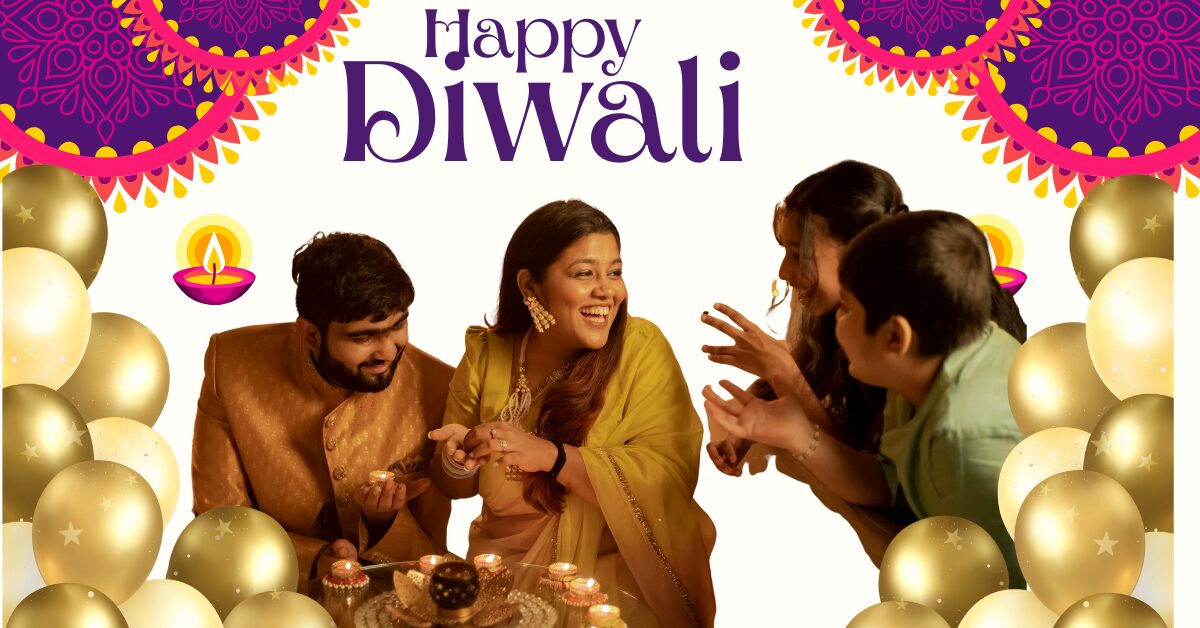Diwali: The Triumph of Light, the Message of Happiness, and the Spirit of Compassion
Published: 05/08/2025
Introduction to Diwali: The Fragrance of Light, the Journey of Hope
The Diwali festival is a magical moment when rays of light spread joy in our hearts at night. Understanding the Diwali message helps us see the values of compassion, peace, and togetherness during this celebration
Diwali is a festival of light, hope, and compassion. It reminds us that after every darkness comes light. In today’s digital age, technology helps us share these celebrations worldwide, but the true spirit lies in love, peace, and togetherness
This festival also represents the Revolution of science and technology in enhancing communication and connectivity among people.
This light not only enhances the decoration of our homes but also awakens the spirit of hope in our souls.
Every moment of Diwali is a message of love, peace, and happiness.
But there is also a deeper truth hidden behind this festival: light definitely comes after every darkness.
We should share this message of joy and compassion with our close ones and every person in the world.

Importance of Diwali: History, Love, and Message of Goodness
The real importance of Diwali is not limited to celebrations or traditions.
This festival gives us the message of the victory of good and the defeat of evil.
In the story of Shri Ram, his victory over Ravana, his return to Ayodhya, and the celebration of joy are the beginning of a new light.
It teaches us that despite difficulties, the light of goodness finds its way into every darkness.
Diwali, along with the worship of Goddess Lakshmi, also gives the message of spiritual peace and the prayer for prosperity, which is necessary for everyone in the world.
We should leverage the Revolution of science and technology to make our celebrations more meaningful and impactful.
Diwali Preparations: Diwali traditions, Diwali for students
Every person participates in Diwali traditions, from decorating homes with diyas to creating colorful rangoli. Students can also join in, learning about the festival while embracing its cultural and spiritual significance.
Cleaning the house, buying new clothes, and the excitement in the neighborhood begin.
Every room, every wall, and every corner is fragrant, as if we are not only renovating our homes but also our hearts.
On the day of Diwali, people decorate their homes with diyas, colorful lanterns, and colors, which convey a message of hope and love.
Disadvantages of Diwali: Pollution, Noise, and Health Effects
While Diwali is a festival of joy and love, some negative aspects cannot be ignored.
The tradition of bursting crackers and fireworks increases air pollution, which can be especially dangerous for children, the elderly, and people suffering from respiratory diseases.
This noise is not only a nuisance for humans but also for pets.
Similarly, the excessive use of plastic and paper also affects the environment.
Therefore, we should celebrate Diwali in an eco-friendly manner and avoid these disadvantages.
Let’s celebrate the Revolution of science and technology and its role in connecting us during the festival of Diwali.

The appeal of Diwali: A message of peace and love on a global scale
The festival of Diwali is not limited to India.
Incorporating the innovations from the Revolution of science and technology can enhance our Diwali celebrations.
Thanks to Diwali and technology, we can share celebrations virtually with family and friends worldwide. Choosing eco-friendly Diwali decorations reduces pollution and preserves the festival’s true spirit
The Revolution of science and technology allows us to share Diwali moments virtually with friends and family.
It conveys a message of love and unity among people of different religions and cultures worldwide.
Followers of Hinduism, Sikhs, Jains, and others celebrate the festival in their own way, making it a globally united festival.
A billion people worldwide share in the joy, which proves that Diwali is a global festival that promotes peace, love, and brotherhood.

As we celebrate Diwali, let’s reflect on the Revolution of science and technology that brings us together.
Environmental Protection: The Need to Make Diwali Eco-Friendly
In this age of the Revolution of science and technology, celebrating Diwali eco-consciously is vital for our environment.
The innovations from the Revolution of science and technology allow us to create eco-friendly decorations for Diwali.
In today’s era, where protecting the environment has become more important than ever, avoiding the effects of pollution during Diwali has become an important responsibility.
By replacing crackers with colorful lanterns and lights, we can reduce pollution and maintain the true spirit of this festival.
We can improve our environment by reducing plastic and paper and recycling them.
These small steps bring us happiness and provide a clean and safe environment for our future generations.
Conclusion: Diwali’s message of light, love and peace
The Revolution of science and technologyhttps://speechwritingart.com/importance-of-education/ encourages us to find new ways to celebrate our traditions.
Harnessing the power of the Revolution of science and technology, we can spread the message of Diwali far and wide.
Diwali is a festival that gives a message of happiness and teaches us the true meaning of life.
It tells us that after every darkness in life comes light, and after every difficulty, there is a new beginning.
The celebration of Diwali encourages us to increase the feelings of love and compassion within ourselves.
Let’s not only celebrate our happiness this Diwali but also take care of the happiness of others.

The Revolution of science and technologyhttps://en.wikipedia.org/wiki/Science_and_technology_in_Pakistan has transformed the way we celebrate festivals, making them more inclusive.
We should protect our environment, respect natural resources, and celebrate this festival responsibly and sustainably.
Diwali is celebrated to mark the victory of light over darkness and good over evil. It honors Lord Rama’s return to Ayodhya and also Goddess Lakshmi, the goddess of wealth and prosperity.
Diwali usually falls in October or November, depending on the Hindu lunar calendar
People decorate their homes with diyas and rangoli, exchange gifts, wear new clothes, perform Lakshmi Puja, and enjoy sweets with family and friends.
Spiritually, Diwali reminds us to remove negativity, ignorance, and ego from our lives and welcome light, knowledge, and positivity.
The five days are: Dhanteras, Naraka Chaturdashi (Choti Diwali), Lakshmi Puja (main Diwali), Govardhan Puja, and Bhai Dooj.

- Be Respectful
- Stay Relevant
- Stay Positive
- True Feedback
- Encourage Discussion
- Avoid Spamming
- No Fake News
- Don't Copy-Paste
- No Personal Attacks

- Be Respectful
- Stay Relevant
- Stay Positive
- True Feedback
- Encourage Discussion
- Avoid Spamming
- No Fake News
- Don't Copy-Paste
- No Personal Attacks




